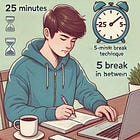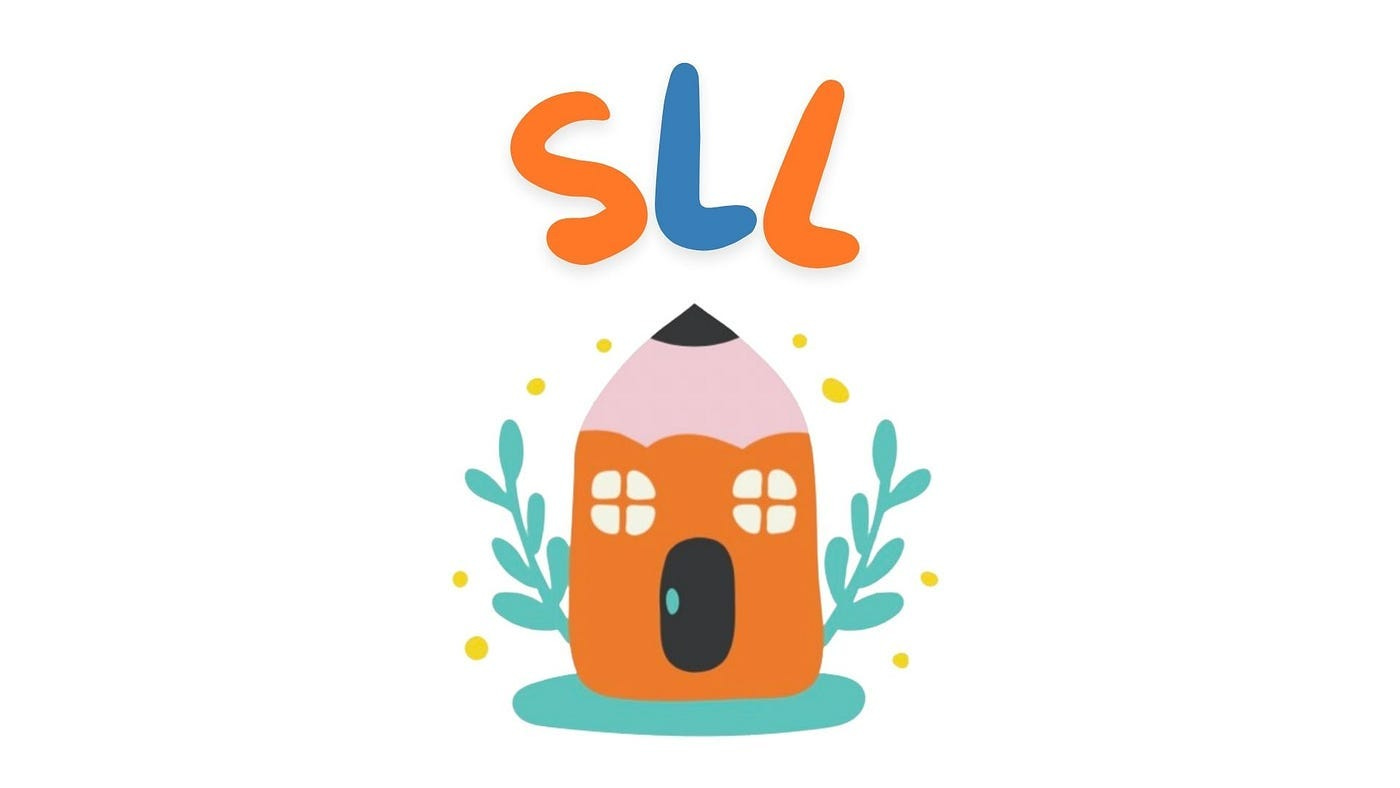5 Books That Will Make You Smarter Than 97% Of People
And embrace effective lifelong learning

Books are a superpower.
I love them because they summarize decades of knowledge or inspire us with stories. I have tons of books to recommend. But I wanted this top to be different.
I wanted to focus on effective learning.
Books that can actually rocket your knowledge in how to learn things fast and effectively. Although I talked about a few of them in later articles, I wanted to share them with you again.
I’m sure that these books will make you smarter :)
1. Uncommon Sense Teaching: Practical Insights in Brain Science to Help Students Learn by Barbara Oakley, Beth Rogowsky, and Terrence Sejnowski
You should start with this one.
Oakley and colleagues are experts in the science of learning. They spent decades researching effective study and teaching methods. In this book, they condense all that information into around 300 pages.
What I love about this is that it is impossible not to engage with it.
It is so well written! Here, you will learn:
The best science-based study strategies.
How students often get fooled by the illusion of learning.
The different types of learners.
The neuroscience of learning.
Table of Contents:
Building Memory: How Students Fool Themselves into Thinking They’re Learning.
Teaching Inclusively: The Importance of Working Memory Capacity.
Active Learning: The Declarative Pathway.
Remedies for Procrastination.
How Human Brains Evolved — and Why This Matters for Your Teaching.
Active Learning: The Procedural Pathway.
Building Community Through Habits.
Linking Learners: The Power of Collaborative Learning.
Online Teaching with Personality and Flair.
Charting Your Course to the Finish Line: The Power of Lesson Plans.
📚 Check this book here (affiliate link)
2. Ultra-Learning: Accelerate Your Career, Master Hard Skills, And Outsmart The Competition by Scott Young
Once you have the basics, you can aspire to more.
Ultra-learning changed my life forever. It made me think about learning differently. It made me realize it is a superpower that can help me in my personal development, getting jobs, scholarships, and more.
Scott starts this book by sharing his experience studying Computer Science at MIT.
From home and for free.
You read that right. He used the free resources available on MIT’s OpenCourseWare and crafted a plan to master it. By doing so, he finished this 4-year degree in only one.
Truly inspiring.
Table of contents
Can You Get an MIT Education Without Going to MIT?
Why Ultralearning Matters
How to Become an Ultralearner
Principle 1-Metalearning: First Draw a Map
Principle 2-Focus: Sharpen Your Knife
Principle 3-Directness: Go Straight Ahead
Principle 4-Drill: Attack Your Weakest Point
Principle 5-Retrieval: Test to Learn
Principle 6-Feedback: Don’t Dodge the Punches
Principle 7-Retention: Don’t Fill a Leaky Bucket
Principle 8-Intuition: Dig Deep Before Building Up
Principle 9-Experimentation: Explore Outside Your Comfort Zone
Your First Ultralearning Project
An Unconventional Education
📚 Check this book here (affiliate link)
3. Make It Stick: The Science of Successful Learning by Peter Brown, Henry Roediger, Mark McDaniel
This book is pure science!
As a PhD student, I love that. Although this book is from 2013, I think it is still one of the best about effective learning. The only reason it’s not above the others is that it can be more challenging to read for beginners.
Here, you will learn about:
Pure science of the best study strategies and why they work.
How to practice retrieval.
How to avoid illusions of learning and improve metacognition.
How to actually make information stick to your memory.
Table of contents
Learning Is Misunderstood.
To Learn, Retrieve.
Mix Up Your Practice.
Embrace Difficulties.
Avoid Illusions of Knowing.
Get Beyond Learning Styles.
Increase Your Abilities.
Make It Stick.
📚 Check this book here (affiliate link)
4. Building a Second Brain: A Proven Method to Organize Your Digital Life and Unlock Your Creative Potential by Tiago Forte
Information nowadays is overwhelming.
There’s too much for our brains to digest. For these reasons, Tiago argues, a personal knowledge management (PKM) is more important than ever. He proposes to build a “second brain.”
This can help you:
Making our ideas concrete.
Revealing new associations between ideas.
Incubating our ideas over time.
Sharpening unique perspectives.
Ultimately, a second brain will help you retrieve information.
And that will make you smarter by enhancing creativity and cognitive flexibility.
Table Of Contents
Part One: The Foundation: Understanding What’s Possible
Chapter 1: Where It All Started
Chapter 2: What Is a Second Brain?
Chapter 3: How a Second Brain Works
Part Two: The Method: The Four Steps of CODE
Capture 4: Capture — Keep What Resonates
Chapter 5: Organize — Save for Accountability
Chapter 6: Distill — Find the Essence
Chapter 7: Express — Show Your Work
Part Three: The Shift: Making Things Happen
Chapter 8: The Art of Creative Execution
Chapter 9: The Essential Habits of Digital Organizers
Chapter 10: The Path to Self-Expression
📚 Check the book here (affiliate link)
5. Procrastination: What It Is, Why It’s a Problem, and What You Can Do About It by Fuschia M. Sirois PhD
Finally, a book about learner’s biggest enemy.
You may have read that procrastination is about being lazy or lacking effective time management skills. Well, this book says that it is way more complex than that.
This book completely changed my view on procrastination.
To defeat it, Sirois argues, we need to understand why it happens.
Fuschia Sirois is a psychologist who has done 20 years of research on how and why humans procrastinate. The strongest argument in her book is that we do it to avoid the negative feelings related to a task.
For example, I voluntarily delayed studying some topics during my degree because I hated them.
Interesting reading that includes many exercises and guides to apply in your daily life.
Table of Contents
Part I How Procrastination Affects Your Life
Chapter 1 Procrastination: An All-Too-Common Problem
Chapter 2 That Mystical Land of Tomorrow: Lost Productivity and Abandoned Dreams
Chapter 3 Can Procrastination Be Bad for Your Health?
Chapter 4 Procrastination Through a Social Lens
Part II When and Why Do People Procrastinate?
Chapter 5 Procrastination Decoded: Why Mood Matters
Chapter 6 Seek the Source
Part III Evidence-Based Strategies to Help You Stop Procrastinating
Chapter 7 Why Mindset Matters
Chapter 8 Perspective Matters: The Power of Reframing
Chapter 9 Embrace Your Future Self to Bridge the Temporal Gap
Chapter 10 Ready, Set, Go!
📚 Check this book here (affiliate link).
Summary
After years of learning new skills, I found these books ideal for beginners.
To recap:
Learn the basics of effective learning by reading “Uncommon Sense Teaching”* by Oakley and colleagues and/or “Make it Stick”* by Brown and colleagues.
Rocket your learning by reading “Ultra-learning”* by Scott Young.
Learn how to manage information and facilitate retrieval by reading “Building a Second Brain”* by Tiago Forte.
Finally, learn how to avoid procrastination by reading “Procrastination”* by Fuschia Sirois.
I hope these books help you in your learning revolution.
*Affiliate links
Ultra-learning saved my career.
It helped me learn anything without overstudying or overworking. But remember, each person has a different life. Perhaps you work full-time and also study. Or maybe you have a family, etc.
Be reasonable, and don’t fall into toxic productivity.
Here are some last recommendations:
Don’t compare yourself with others. Take your time.
This is not a competition. This is about you. Make it fun and healthy.
Please take care of yourself. That’s the most important thing!
Now it is your turn.
What are you going to learn next?
Until the next time,
Axel







Thank you for the list. I have identified that at least two of the books are available through my local library and I am excited to learn how to accelerate my learning!
There are 6 books in the picture